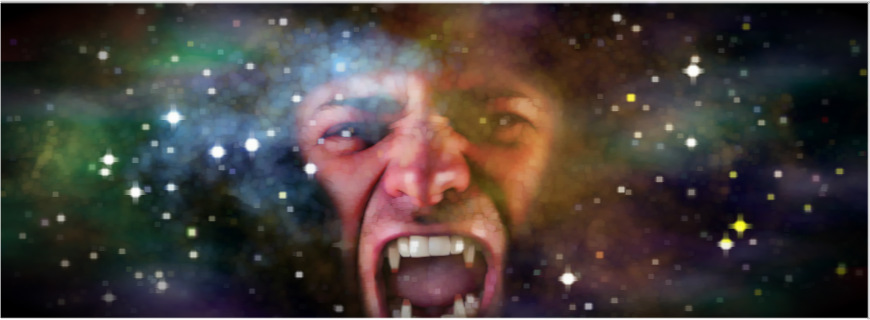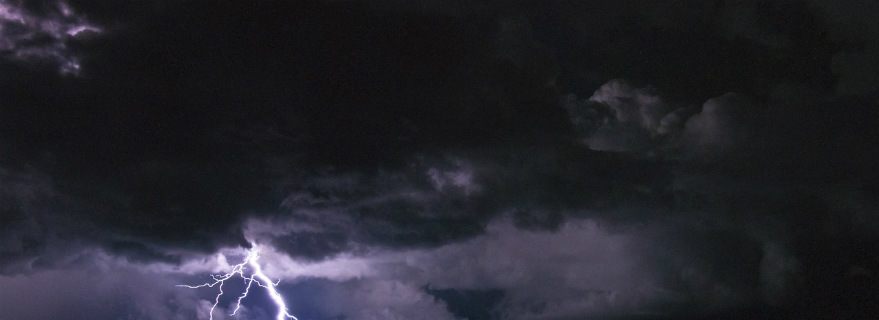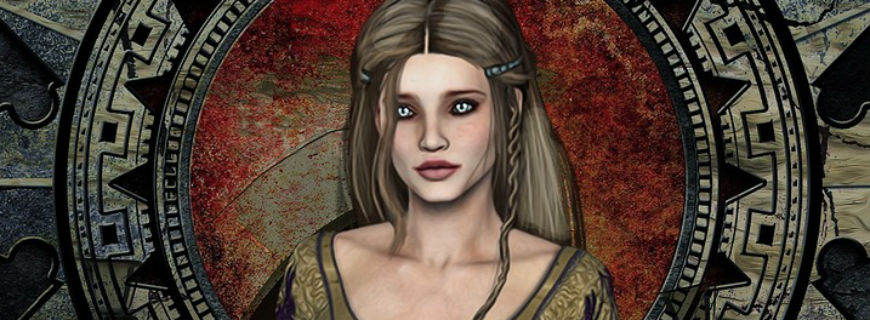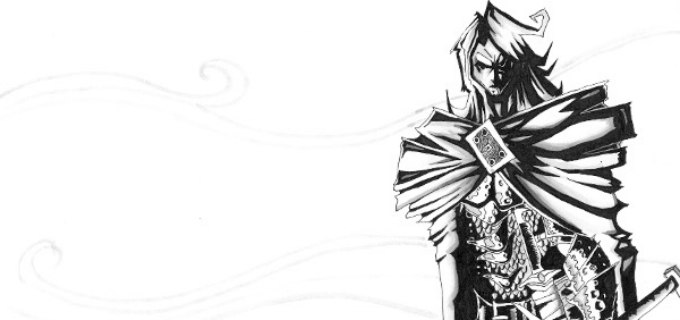‘Annalium Scriptor’, Epitaph Four: Mending Lullaby by Zach Wheat

Annalium Scriptor’
by Zach Wheat
Epitaph Four: Mending Lullaby
When the trio returned to The Miner’s Delight, fresh from their baths, they found it notably less animated. Mara provided them with clean clothes, simple and functional, leaving them attired like Ghostblade’s miners. It was not unnoticed. Neither was a lone figure, in a wide brimmed hat and long black coat, leaning against the bar, nursing a drink.
“Now ya don’t look or smell like bandits,” the barmaid commented. “Mara,” she commanded, “bring them visitors some stew.”
“What about Tawn?” Joth asked. Tawn, hearing his name, wagged his tail in long circles and looked at the Dajenfel with amused expectation.
“Go ahead,” she signed, “and ladle a bowl for the…dog.” While the difference in appearance for all of them was rather stark, Tawn looked the most different of all, the fulvous coat, and brindled face, with a very distinct, foxlike muzzle, and feral, amber eyes, looking more like a giant jackal than a dog.
Mara set the bowls on an empty table and gestured to the pair to sit down, setting the third bowl on the ground under it, and walked back behind the bar. Tawn cocked his head, confused at such a rare treasure being so casually abandoned.
“It’s okay, Tawn,” Stradanis assured him. Tawn sniffed suspiciously at the stewed meat and began to lick it, as Mara set the table with steins of ale.
“I’m not sure I can afford this, Mara,” Stradanis said.
“It’s on the gentleman in black at the bar,” she replied. The tall dark-clad man turned around, with his own stein in his hand. His face was weathered and red from the sun, and he looked at them with dead blue eyes.
“Could I join you two?” he asked.
“It’s not up to me,” Joth said with a frown.
“I don’t care,” said Stradanis without looking up.
“I’m Krag of Stygia,” the man said. When Krag sat, Stradanis noticed the large black cogwheel pinned to the man’s coat lapel. He also noticed that Joth’s frown remained, and his eyes fixed on his food.
“I understand you’re a musician,” Krag said.
“How did you hear that?” Stradanis asked.
“People heard you playing for Sherriff Caius. In a town this small, it’s high intrigue. Not much music left in the world.”
“You could say it’s kept me alive,” Stradanis said.
“I’d be happy to keep the ale flowing for you both if you would play for us,” Krag offered.
“And I’d be happy to get drunk on your coin,” Stradanis said.
“Does your companion play too?” Krag asked.
“No,” Stradanis said, “he’s a smart dog, but he’s not that smart.”
“I meant the Dajenfel,” Krag said.
“Joth,” Joth said. “My name is Joth.”
“Pleased to meet you, Joth,” he said. “And your Valendorian friend?”
“I’m not his friend,” said Stradanis.
“Well, that would suggest the old rivalries survived the war,” Krag said.
“Those old rivalries were pointless long before the war,” Stradanis said. “He’s not even old enough to remember the war, besides.”
“I’ve heard him play,” Joth said. “It’s good.”
“It’s been many years since I’ve heard a song,” Krag said. “Do you know anything Stygian?”
“A folk song or two,” said Stradanis.
Stradanis slurped the last of his stew and moved his drink and varytonos alongside the fire. He sat in front of it, opened his case, and tuned the eight strings of the odd metal instrument. The conversations became muted as everyone looked at him.
Stradanis strummed the instrument quietly, and then accompanied the strumming with a low baritone. Then the song began to pick up speed as his hand raced along the eight strings of the varytonos, and his voice raised in volume. In perfect pitch, he sang The Smuggler in the original Stygian. With his Valendorian accent, Stradanis sang about the old soldier who turned to smuggling henbane to feed his family. Some began to cheer and sing along.
By the first chorus, when he growled the lines about “no more wars to fight except the one to feed my family’ the inn began to cheer. Bright blue light filled the room and the Valendorian was so bright with it, few could lay their eyes on him for more than a moment. By mid-song, waves of euphoria swept the room, silencing even the drunkest patron.
Stradanis continued to play for another hour, as Mara laid tankard after tankard of ale at the feet of the Valendorian. A few danced, but most watched in shocked silence, as villagers wandered into the inn to investigate the commotion. By the end of the hour, there was no room left to stand. Joth, seeing the opportunity, picked up an empty mug and walked through the crowd, soliciting for coin.
Mara whispered to Stradanis as she handed him his fifth tankard. “The Miner’s Delight is closing soon, so I’ll play one last song”, he said to the crowd.
Stradanis sang a quiet lullaby, his mouth wrapping around the delicate sounds of Valendorian. Mara’s tired knees stopped creaking. Joth’s cuts began to close, and all the many pains and ailments of the miners, from hurt joints to fatigued muscles, to the odd broken bone that never healed quite right, washed away as violet, blue, and white light filled the room with a powerful feeling that all of yesterday’s miseries would be made right when the sun rose in the morning.
“All ya old bastards need to go home,” Mara yelled. “Unless yer payin’ for a room.”
Joth stood near Stradanis, as the Valendorian put his instrument back in the case and pulled on his ale. “He’s tired now,” Joth said, holding out the tankard, overflowing with cog. “Let him drink and put up his varytonos,” he said to another. “Of course he’ll play again,” he said to yet another. As the drunk miners plinked their steel coins into the mug, Mara swept around them.
“I got a few you dropped,” she said to Joth. “It’s enough to cover a night here, if you don’t mind sleeping in the , here, next to the fire.
“I need some air,” Stradanis said. He walked outside with Tawn as the crowd dispersed. Joth hurried after him.
“We made 60 cog, Stradanis,” Joth said.
“Good,” said the Valendorian. “but tell me, why were you so surly with the Stygian? We owe this good fortune to him, really”
“The Cog Man?” Joth asked?
“Do you not like humans?” Stradanis asked.
“He was corrupted,” said Joth.
“What do you mean, corrupted?” he asked.
“The fibers in his cloak, you could see them moving, like worms. In his bones, you could see all the darkness inside, like, rotting.”
“What are you on, about, Joth?” Stradanis left. “He’s just some salty dog,”
“No,” said Joth. “The Black Cog, they use the darkness. In their machines, in their soldiers, it changed them. They are no longer men.”
“You sound like the weepy Sherriff,” Stradanis said.
“The broken one,” Joth said in disgust. “I’m nothing like him.”
“Is he corrupted too?” Stradanis asked.
“No,” said Joth, sounding unusually annoyed. “He’s broken.”
“Well, he did keep yammering on about dark gods in the sky, how the stars will never look the same again,” said Stradanis. “Bleeding mad, that one.”
“It was the only thing he said that made sense,” Joth said. “You can’t see it, can you?”
“See what?” Stradanis asked.
“The Dark Gods in the stars,” he yelled, “the fibers in the coat, the dark engine in the Stygian. It’s all around us. You are making a joke? I can’t believe someone so strong could be so blind.”
Stradanis looked up. “I see stars, Joth,” he sighed. “I’m sure you believe you see the Dark Gods…”
Joth furrowed his brow. “You aren’t listening, Stradanis. You’re still trying to see the world as it was. Concentrate.”
“Ok, Joth,” said Stradanis. “Where should I be looking?”
Joth pointed to a particular spot in the sky. “That one is looking right at us. He’s angry.”
“I see stars, Joth,” Stradanis said.
“Concentrate,” Joth growled, with his hand still pointing. “See what’s really there.”
Stradanis squinted for a good minute until his eyes began to hurt and then his head began to hurt, and then he dropped his ale. in the stars, he clearly a saw a giant angry, bald face, with a giant scowl, staring down at him. In a panic he looked away and it was gone.
“You see it?” Joth asked
“Yes,” said Stradanis. “It’s…it’s gone now.”
“Try again,” Joth said.
“It’s not arcana?” Stradanis asked.
“No,” said the Dajenfel. “It’s just the way of things. Are you trying?”
“No, wait,” said Stradanis, “Okay, I see…Oh Kronos’ bones.”
“What do you see?” Joth asked.
“The sky is full of them all,” Stradanis stammered, “all looking at us, looking at me.”
“They always do,” Joth shrugged. “You need to use it to look at people, to see the corruption.”
“It’s so…foul,” Stradanis sighed. “It fills me with…”
“Yes?” Joth asked.
“Rage,” said Stradanis. “the brilliance of a thousand suns.”
“You fought them before,” Joth said. “You were a Legionnaire, a rebel.”
“I fought their emissaries,” said Stradanis, “Well, the thralls of their emissaries.”
“But the emissaries,” said Joth, “the angels, they are gone. You won, right?”
“That’s a dirty joke,” said Stradanis. “They killed the world on their way out.”
“Maybe we should go to sleep,” Joth suggested. “It’s been a long day. I require rest.”
Stradanis picked up his stein and turned around, facing the Dajenfel.
“You could always do this?” Stradanis asked.
“I remember the before time, when I was small,” Joth said. “The stars were different, and were merely stars. Then I got older and the world changed, and I see the corruption everywhere. I doesn’t make me angry. It just is, like everything else.”
“Does it weigh on you?” Stradanis asked.
“No,” said Joth. “That would make me weak, like that sheriff. I like drinking ale, and fighting, and women and your music. These are good. They make me happy.”
“If gods hate us anyway,” the Valendorian said, “You are wise not to let them do otherwise.”
“I’m glad I could teach you,” Joth said, without a hint of sarcasm.




